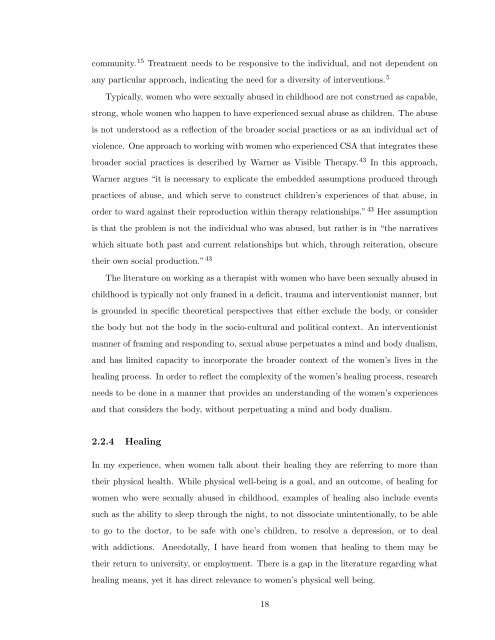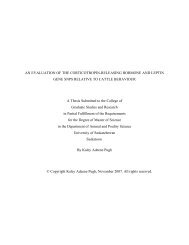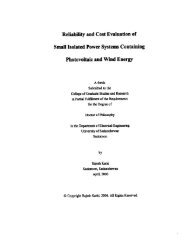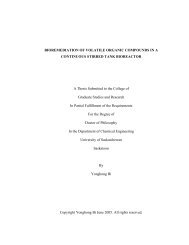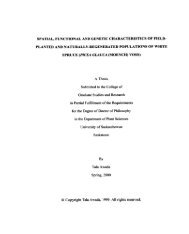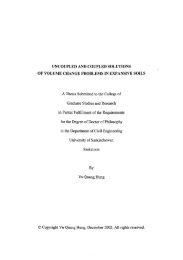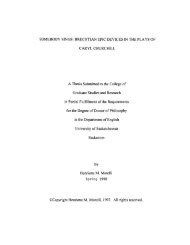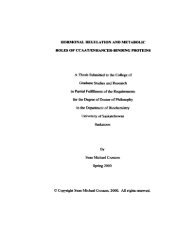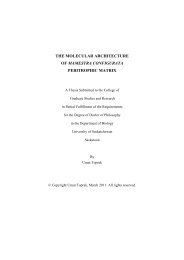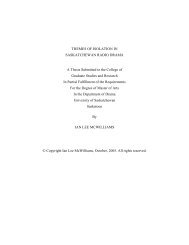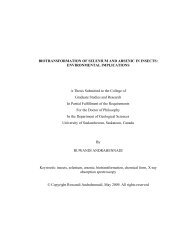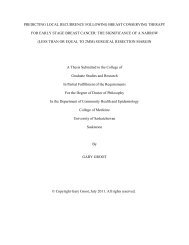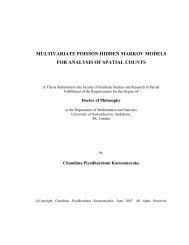Women's Narratives of Healing from the Effects of Child Sexual Abuse
Women's Narratives of Healing from the Effects of Child Sexual Abuse
Women's Narratives of Healing from the Effects of Child Sexual Abuse
You also want an ePaper? Increase the reach of your titles
YUMPU automatically turns print PDFs into web optimized ePapers that Google loves.
community. 15 Treatment needs to be responsive to <strong>the</strong> individual, and not dependent on<br />
any particular approach, indicating <strong>the</strong> need for a diversity <strong>of</strong> interventions. 5<br />
Typically, women who were sexually abused in childhood are not construed as capable,<br />
strong, whole women who happen to have experienced sexual abuse as children. The abuse<br />
is not understood as a reflection <strong>of</strong> <strong>the</strong> broader social practices or as an individual act <strong>of</strong><br />
violence. One approach to working with women who experienced CSA that integrates <strong>the</strong>se<br />
broader social practices is described by Warner as Visible Therapy. 43 In this approach,<br />
Warner argues “it is necessary to explicate <strong>the</strong> embedded assumptions produced through<br />
practices <strong>of</strong> abuse, and which serve to construct children’s experiences <strong>of</strong> that abuse, in<br />
order to ward against <strong>the</strong>ir reproduction within <strong>the</strong>rapy relationships.” 43 Her assumption<br />
is that <strong>the</strong> problem is not <strong>the</strong> individual who was abused, but ra<strong>the</strong>r is in “<strong>the</strong> narratives<br />
which situate both past and current relationships but which, through reiteration, obscure<br />
<strong>the</strong>ir own social production.” 43<br />
The literature on working as a <strong>the</strong>rapist with women who have been sexually abused in<br />
childhood is typically not only framed in a deficit, trauma and interventionist manner, but<br />
is grounded in specific <strong>the</strong>oretical perspectives that ei<strong>the</strong>r exclude <strong>the</strong> body, or consider<br />
<strong>the</strong> body but not <strong>the</strong> body in <strong>the</strong> socio-cultural and political context. An interventionist<br />
manner <strong>of</strong> framing and responding to, sexual abuse perpetuates a mind and body dualism,<br />
and has limited capacity to incorporate <strong>the</strong> broader context <strong>of</strong> <strong>the</strong> women’s lives in <strong>the</strong><br />
healing process. In order to reflect <strong>the</strong> complexity <strong>of</strong> <strong>the</strong> women’s healing process, research<br />
needs to be done in a manner that provides an understanding <strong>of</strong> <strong>the</strong> women’s experiences<br />
and that considers <strong>the</strong> body, without perpetuating a mind and body dualism.<br />
2.2.4 <strong>Healing</strong><br />
In my experience, when women talk about <strong>the</strong>ir healing <strong>the</strong>y are referring to more than<br />
<strong>the</strong>ir physical health. While physical well-being is a goal, and an outcome, <strong>of</strong> healing for<br />
women who were sexually abused in childhood, examples <strong>of</strong> healing also include events<br />
such as <strong>the</strong> ability to sleep through <strong>the</strong> night, to not dissociate unintentionally, to be able<br />
to go to <strong>the</strong> doctor, to be safe with one’s children, to resolve a depression, or to deal<br />
with addictions. Anecdotally, I have heard <strong>from</strong> women that healing to <strong>the</strong>m may be<br />
<strong>the</strong>ir return to university, or employment. There is a gap in <strong>the</strong> literature regarding what<br />
healing means, yet it has direct relevance to women’s physical well being.<br />
18


